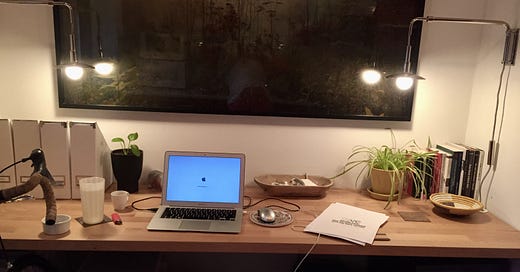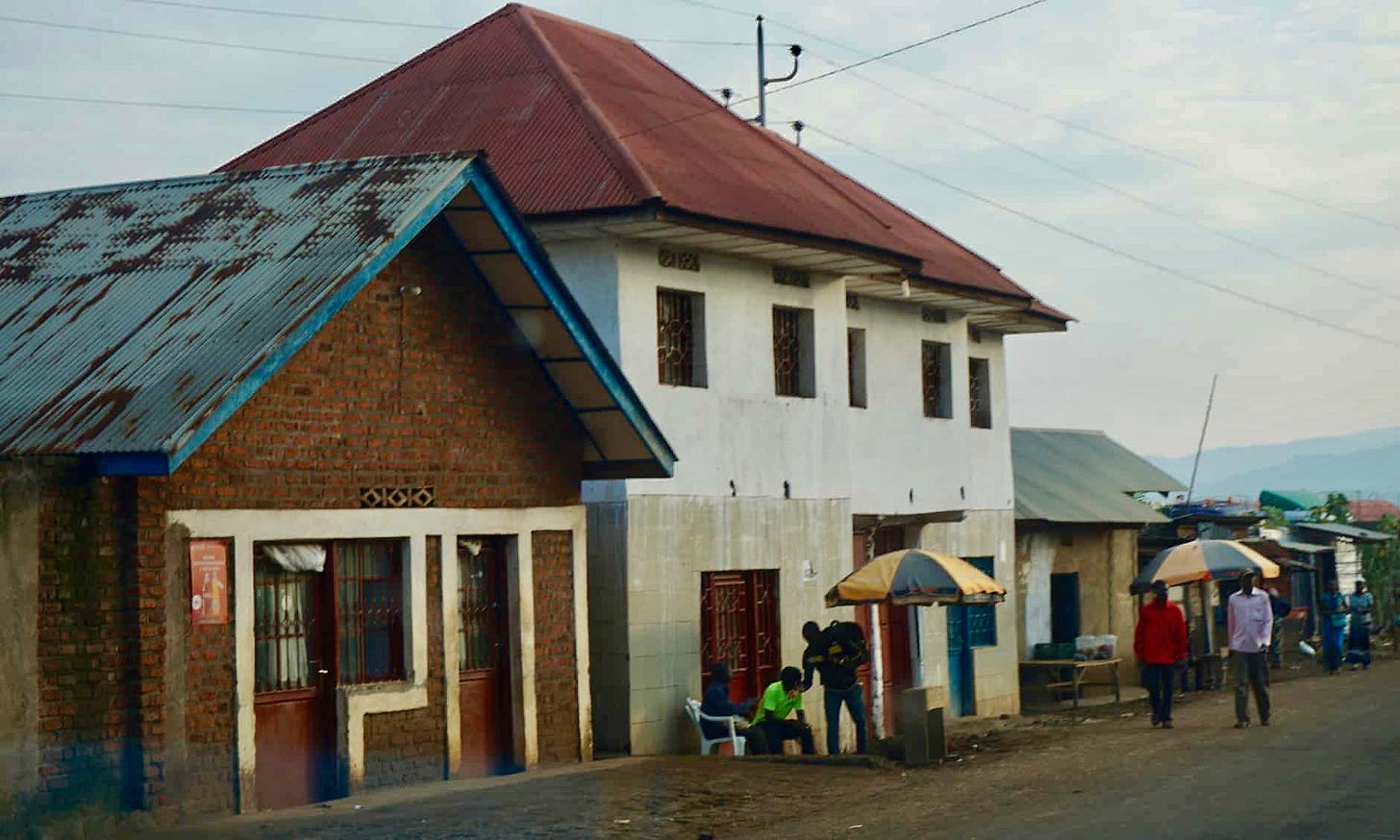How a journalist chases a monster, Part 9
What to do when doing nothing gets people hurt, and doing something could get someone killed?
Read Part 1 of this series here. It will give you background on the story of the girls that this backstory is dependent upon.
After about 14 days in the Democratic Republic of Congo, I was back in New York City, furiously writing a long-form article about Kavumu for The Guardian. Thousands of words spilled out of me. (Way too many, it would turn out, for one piece, which is probably why I’m still writing about this five years later.)
Now home in Brooklyn, I spent my days and nights firing off nonstop emails and WhatsApp messages to my sources in DRC, Boston, Geneva, the Netherlands, Sweden, Uganda and I honestly can’t remember how many other places. My phone was hot to the touch most of the time.
The insanity of this period involved constantly using Google Translate to send messages back and forth in French. My Congolese sources all spoke French as well as Swahili and some English, but my French was as meh as their English, so I made sure to send everything in both languages, just in case, often scrambling to find friends fluent in French who would ensure that my Google translations were correct. (I have to say though, having a background in Latin and Italian at least makes working in French- and Spanish-speaking countries somewhat intelligible. Reporting in the Middle East without speaking more than a handful of words in Arabic has always made understanding even the basics around me — offhand comments nearby, the gist of a conversation I’m not supposed to hear — that much more impenetrable, limiting the depth of the stories I can tell.)
Putting an end to the horrors of Kavumu was a massive global group effort, and the time zone differences meant I was awake and working pretty much all the time. (Self-care, you ask? Pshaw, I say. But, actually, since many of you have asked, I’ll just say that overworking and writing too much is — by far — the most positive coping mechanism I’ve discovered over many years of returning from painful foreign reporting trips.)
But, as I wrote in Part 7 of this series, I’d given my word to the fearless, lone investigating officer, David Bodeli, that I would not publish my story until he’d arrested the rapists, which, at the time, he’d thought would be soon. So soon, that I’d even extended my stay for a few days, hoping to be there to see it all go down. What I wouldn’t have given to be there for that…
When I left Congo in January 2016, Bodeli believed the arrests would happen by the end of the month. They didn’t.
Nor did they happen the next month.
Or the next.
Over the next five months, as I sat watching and waiting in New York, four more little girls were raped.
Sitting around my Brooklyn apartment, knowing who the perpetrator of the Kavumu gang rapes was — Batumike, the politician I wrote about here (and no, I am not using “allegedly” in this piece or throughout this series because he was ultimately convicted. He was the perpetrator, and the leader of dozens of other men who raped the girls as well) — unable to publish about it, was killing me.
The whole point of all these years of work by Bodeli, NGOs like Physicians for Human Rights, TRIAL International and Coopera, doctors like Denis Mukwege and his colleagues at Panzi Hospital, local lawyers and many more was to stop these atrocities. And I was sitting on information that could potentially move that process forward.
The safest thing to do was wait for the arrests before publishing, my sources all agreed. Releasing the wrong information, even something tiny, could get someone killed. But as one rape after another continued in Kavumu, I needed to find a compromise. Doing nothing was accomplishing nothing. I weighed the role I had to play in this as a member of the media. My NGO contacts were adamant that publishing could hurt not only my sources but also the investigation. But the fact that Bodeli was ready to make the arrests, yet was not being given the go-ahead by his higher-ups, told me that something was wrong.
Batumike was a man with probable connections 900 miles across the country in the capital, Kinshasa. It was entirely possible that there were political strings being pulled as a contentious election season erupted in national protests. President Joseph Kabila was attempting to hold onto power, despite having already served his constitutionally allowable two terms. My understanding was that he needed to keep local allegiances with MPs in his party or those in his alliance. Batumike’s party was in his alliance.
I considered publishing my long-form story as written, naming Batumike. I wondered whether to publish without naming the suspect, but saying that the police did have a suspect. I struggled over whether to name my sources, and how high in the government to place blame. I wondered whether to wait longer and hope that the government would finally make arrests. Mostly, I was stuck between my commitment to my agreement with Bodeli and the desire to do … anything.
Finally, I came up with a remarkably effective solution.
I had been told that international media pressure from a Foreign Policy magazine article I’d published on the little girls in 2014 had scared the government; international media attention to their failings was not good, to say the least. I knew that I may not be able to publish Batumike’s name yet — in order to not give him a chance to run — but I could publish something, something that would point a finger squarely at the Congolese government for its inaction.
I contacted my Guardian editors: I wanted to write an op-ed before we ran the big piece. I planned to call out the government for sitting on information about the clearest possible suspect and not acting on it. I spoke with a close UN source who had an expertise on Congo; she agreed that it was the right thing to do. Despite the reservations of my NGO contacts, I trusted my gut. I have learned over many years how to tell a delicate story while protecting the identities of witnesses, sources and rape survivors. NGOs, I have long known, do not always use the same methods as the media to provoke action and create transparency. We all, however, wanted justice for the girls and for the violence to stop. We each had a role to play. I knew I had to try.
The op-ed went up on June 20, 2016. Four hours later, the warrants to arrest Batumike and 67 of his men were issued. Twelve hours later the men were all in custody.
Something woke me that night at 3:30 a.m. As an email-obsessed insomniac, I checked my phone.
I had a message from Bodeli: “We have made the arrests. You can go ahead and publish everything now.”
Read Part 10 of “How a journalist chases a monster” here.
Thank you, as always, for reading.






As I commented in an earlier installment, I find myself engrossed not only by the unspeakable human tragedy that are at the center of your story, but also by the ethical questions that you had to struggle with as a reporter at almost every turn. When is it permitted to compensate achingly poor sources for their time and trouble? How to learn essential facts about the abuse the Congolese girls who were raped while somehow not retraumatizing them them in the process of conducting interviews? And, now, in this episode, how to stop ongoing crimes without publicizing information that could place your sources and allies in significant jeopardy? Each of these questions pitted your journalistic interest in getting the story out against your compassionate obligations to the people involved. You've made your agonizing over these urgent decisions palpable to me, and, I hope to others, especially those who might mistake the trappings of journalistic ethics for the real thing. I really do appreciate it.
Once again, you have jarred my tranquility and refreshed my memory of your treacherous journey in DRC. Your ability to bring the horror of that situation to the world and your important contribution, without smug self-aggrandizement, is overwhelming. More people need to know what happens in some of these poor countries, where the majority is uneducated and has virtually no ability to defend themselves.
Once again, what you do makes me a very proud papa!